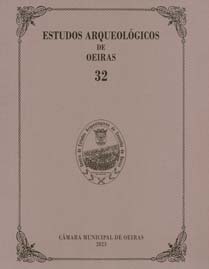Sobre los orígenes de Lusitania
DOI: https://doi.org/10.5281/zenodo.7920529
Palavras-chave:
Lusitani, Indo‑European languages, Indo‑European religion, Warrior‑shepherds, Lusitanian Language, Palaeoethnology, Longue duréeResumo
The Lusitani are one of the main peoples of pre‑Roman Iberia (Strab. III,3,3). Its territory and its archaic society, religion and language are analyzed, as well as some popular folk traditions of Lusitanian origin. The dispersion of the “Lusitanian” warrior stelae from the Bronze Age and the Galician‑Lusitanian warrior sculptures from the Iron Age coincides with the epigraphs in Lusitanian language and with Lusitanian theonyms and anthroponyms. They delimit the ancient Lusitania. This interdisciplinary analysis raises the origin of the warlike Lusitani as semi‑nomadic Indo‑European warrior‑shepherds, probably originating from the steppes of Ukraine, adapted from the Bell Beaker times to the pastoral siliceous regions of western Iberia, until Augustus divided their territory by creating the Provincia Lusitania 16 B.C. to subdue them.
Downloads
Publicado
Como Citar
Edição
Secção
Licença
Os artigos publicados são da exclusiva responsabilidade dos Autores.
É expressamente proibida a reprodução de quaisquer imagens sobre as quais
existam direitos de autor sem o prévio consentimento dos signatários dos artigos
respectivos.




